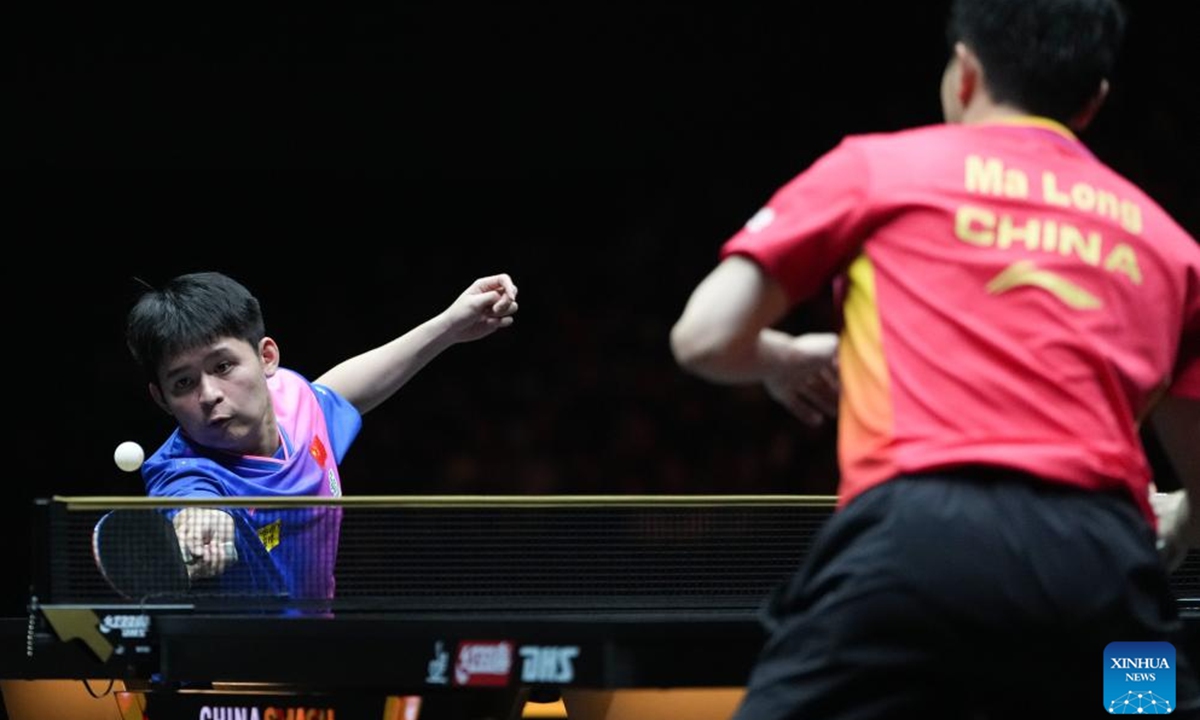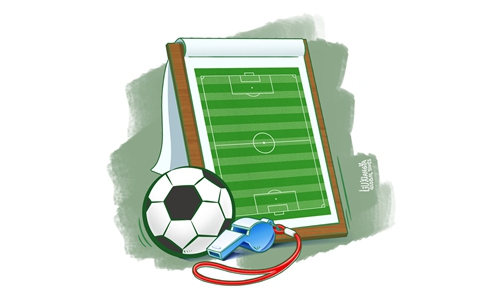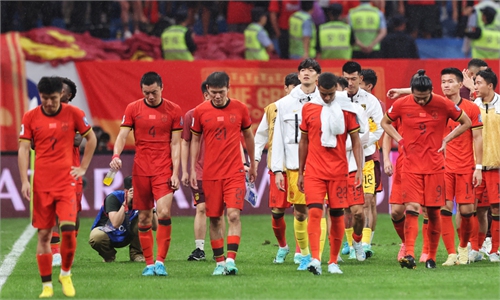SPORT / TENNIS
Table tennis head coach responds to team’s worst results in history

Lin Shidong (L) of China hits a return during the men's singles final match against Ma Long of China at 2024 World Table Tennis (WTT) China Smash in Beijing, China, Oct. 6, 2024. (Photo: Xinhua)
The Chinese table tennis teams missed both the men's and women's championship at the recently concluded WTT Montpellier Champions tournament due to a lack of systematic training and the absence of key players. The coaching team would take these recent setbacks seriously and conduct timely analyses, said head coach Li Sun on Tuesday.
"Following the WTT Macao Champions and the 2024 China Smash, the entire team entered an adjustment period. Several main players did not participate in recent tournaments, leaving more young players to take on the competitions," Li noted.
"With the start of the new Olympic cycle, the competitive landscape has yet to be stabilized, and every team now has championship opportunities," Li said. "Our main players, due to insufficient systematic training, have not fully recovered physically or mentally, which prevented them from reaching their peak competitive form."
At the recently concluded Asian Championships in mid-October, several young players from foreign associations showed impressive growth and rapid skill development. Fourteen-year-old Iranian player Benyamin Faraji not only defeated Wang Chuqin 3-2 in the men's team event but also nearly beat Lin Shidong in the men's singles. Japan's 16-year-old Miwa Harimoto won against Wang Yidi and Sun Yingsha in the women's team finals. North Korean player Kim Kum Yong also demonstrated a more mature playing style.
Li said that the competitiveness displayed by players from different teams has provided a strong challenge for China's young athletes, helping them identify areas for improvement and set clearer goals.
"Regarding the problems revealed during these matches, the coaching staff will take them seriously and promptly analyze them. The key is to understand what we can learn from this temporary setback," Li said.
At the upcoming WTT Champions tournament in Frankfurt, Germany in November, the main players are expected to gradually return to competition.
"The rise of players from other associations is beneficial to the development of table tennis. Only when diverse talents are flourishing can the sport truly progress," sports commentator Wang Dazhao told the Global Times. "Recent losses in competitions do not signify a downturn for Chinese table tennis; the teams' outstanding achievements at the recent Paris Olympics are its best proof."
For Li, this phase of combining training with competitions is valuable preparation for the next stage, whether they win or lose.
"Young Chinese players need more match experiences and time to mature - an inevitable part of competitive sports development," Li said.
"At the Paris Olympics, China's table tennis team won all five gold medals for the first time. This embodied the tremendous dedication and effort from everyone. We hope table tennis fans will also show understanding and support," he added.



